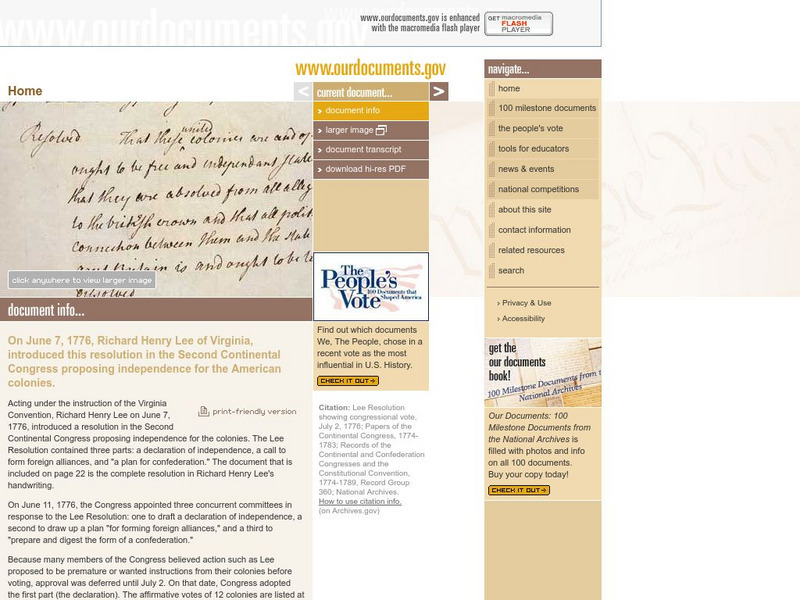Center For Civic Education
Center for Civic Education: Abraham Lincoln and Executive Power
This lesson traces the rise of Abraham Lincoln from his humble beginnings to the presidency of the United States. You will examine Lincoln's ideas and decisions regarding slavery and the use of the presidential power to preserve the...
Harp Week
The End of Slavery: The Creation of the 13th Amendment
What a wonderful resource for researching the attempts to solve the issue of slavery prior to the Civil War, and the eventual ratification of the 13th Amendment. Find a timeline of legislation limiting the spread of slavery from 1787...
The Newberry Library
Newberry Library: Lincoln, the North, and the Question of Emancipation
This learning module explores Lincoln's arguments against slavery as well as public feelings and concerns about emancipation as expressed through art and literature of the day.
Cornell University
Cornell University: Library: I Will Be Heard! Abolitionism in America
A collection of original manuscripts, letters, photographs, rare books, and other materials on abolitionism from the 1700s through 1865.
PBS
Pbs Learning Media: Writing in u.s. History: The Emancipation Proclamation
Assess how the Emancipation Proclamation expanded ideas of freedom and liberty, looking at the antislavery debate that led to the proclamation, the influences on Lincoln's decision, and the provisions of the document. In this interactive...
PBS
Pbs Learning Media: Frederick Douglass: Orator, Editor, and Abolitionist
Through two primary source activities and a short video, understand how Douglass stood firm in his beliefs and rose to prominence, and explore the importance of literacy in his life.
PBS
Pbs Learning Media: Booker T. Washington: Orator, Teacher, and Advisor
Through two primary source activities and watching a short video, students will learn about Booker T. Washington's commitment to African American education, and assess his ideas about how to achieve equality for African Americans in the...
Cornell University
Cornell University: Library: I Will Be Heard: The Emancipation Proclamation
The Emancipation Proclamation changed the focus of the Civil War. Read about its importance, but also its inability to free a single slave in the South. Find a link to Abraham Lincoln which explains his change of thinking about the only...
National Humanities Center
National Humanities Center: Toolbox Library: 1913: Fifty Years, Making of African American Identity: V. 2
A poem, an address, and a blues song that express black life in the first fifty years after the Emancipation Proclamation. The texts examine whether the true meaning of the proclamation carried forward to the lives African Americans.
National Humanities Center
National Humanities Center: Toolbox Library: Emancipation, 1864 1865
Letters and narratives of slaves freed at the end of the Civil War. An interesting look at the confusion and eagerness which confronted these newly freed Americans.
University of Groningen
American History: Outlines: Peace Democrats, Copperheads, and Draft Riots
Abraham Lincoln did not have universal backing in the conduct of the Civil War. Read about the opposition, mainly from the Democrats, who opposed emancipation of the slaves and waging a war to reunited the country.
Library of Congress
Loc: Civil War and Reconstruction
This site from the Library of Congress provides overviews of the South and North during the Civil War include soldiers' stories from both sides. There are primary documents on these topics as well as Freedmen and the Reconstruction.
Digital History
Digital History: America's Reconstruction: A Visual Timeline of Reconstruction
This resource provides a timeline of the Reconstruction era in the South.
Library of Congress
Loc: African American Odyssey: The Civil War
Prints, photographs and documents form the Library of Congress collections tell a story of African Americans and the Civil War including contrabands of war, emancipation, soldiers and missionaries, and fighting for freedom.
National Endowment for the Humanities
Neh: Edsit Ement: Civil War: A "Terrible Swift Sword"
In this Curriculum Unit, students will consider "Civil War: A"Terrible Swift Sword"" in 3 Lessons. The unit also includes worksheets and other student materials that can be found under the resource tab.
Scholastic
Scholastic News: The End of Slavery
January 2, 2013 marked the 150th anniversary of the signing of the Emancipation Proclamation, which ended slavery in the United States. Read about the order and how it was being celebrated on this historical anniversary.
US National Archives
Nara: American Originals
A collection of important documents highlighting events in United States history. These at one point were on display in the Rotunda of the National Archives Building. Each document is accompanied by a short description of its significance.
PBS
Pbs Teachers: Conflicting Newspaper Accounts (Civil War Lesson Plan) [Pdf]
Multilayered lesson plan that begins with analysis of a series of photographs of the battle of Antietam and ends with writing an account of the battle in the style of a nineteenth-century war correspondent from opposing perspectives of...
US National Archives
Our Documents: 13th Amendment to the u.s. Constitution: Abolition of Slavery
Take a look at an image of the constitutional amendment that put an end to slavery in the United States. Interactive image is accompanied by an overview of the amendment's inception and adoption, as well as document transcript.
US National Archives
Our Documents: Emancipation Proclamation (1863)
Image of handwritten copy of Lincoln's Emancipation Proclamation, accompanied by an explanation of the speech's purpose, impact, and role in American history.
The History Place
The History Place: Abraham Lincoln
This site provides an extensive timeline of the life and work of Abraham Lincoln. Throughout the timeline there are photos that can be enlarged and many, many links to speeches, papers, letters of Lincoln's. The site is very easy to...
Art Institute of Chicago
Art Institute of Chicago: Art Access: American Art to 1900
Study works of American art from the eighteen and nineteenth centuries. Works in a variety of media, including the decorative arts, are represented as are pieces by some of America's best-known artists: Copley, Church, Homer, and...
Cynthia J. O'Hora
Mrs. O's House: Emancipation Proclamations
Students will review, compare and contrast the Emancipation Proclamation of January 1, 1863 with the District of Columbia Emancipation Act.
Other
The Works of Abraham Lincoln
This personal site gives links to the full text of several of Lincoln's famous speeches including the "Gettysburg Address," "The Emancipation Proclamation," and his inaugural addresses.


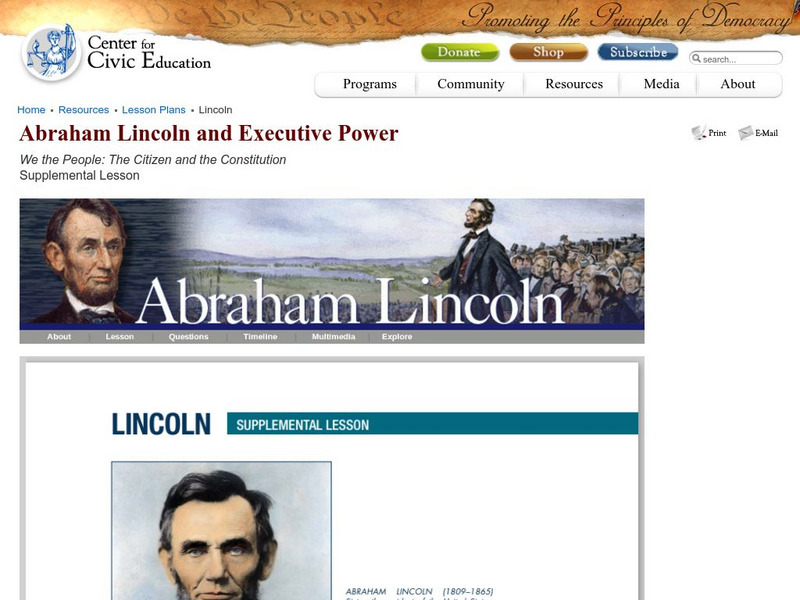
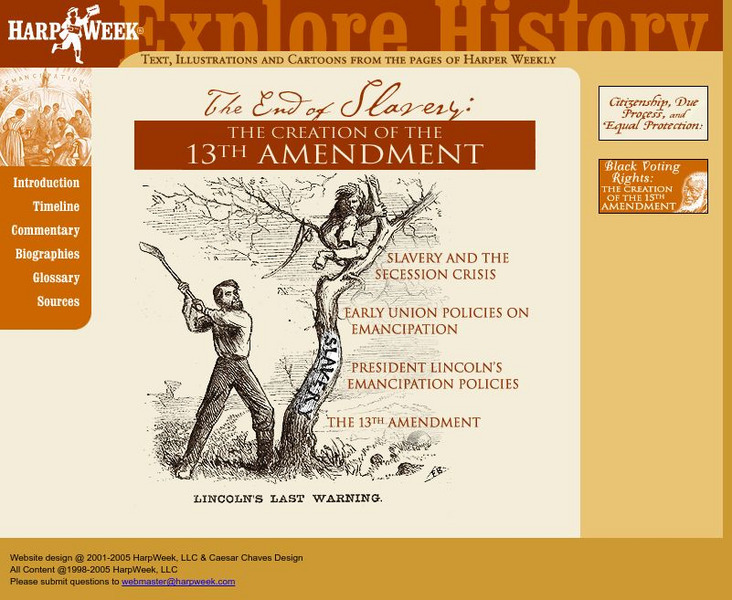

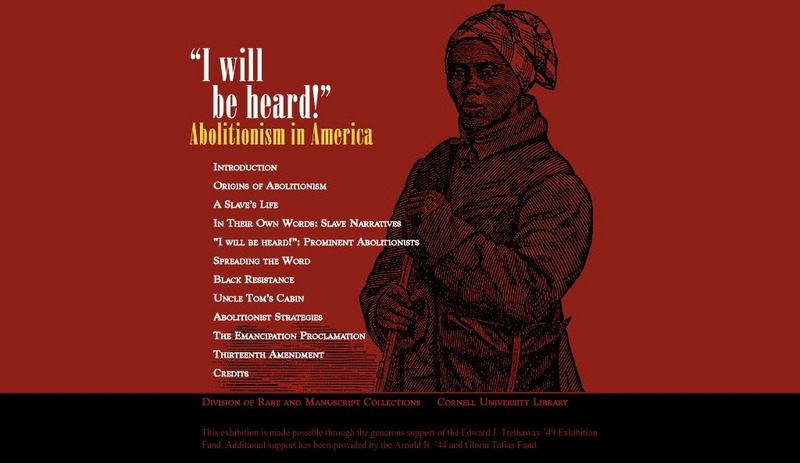


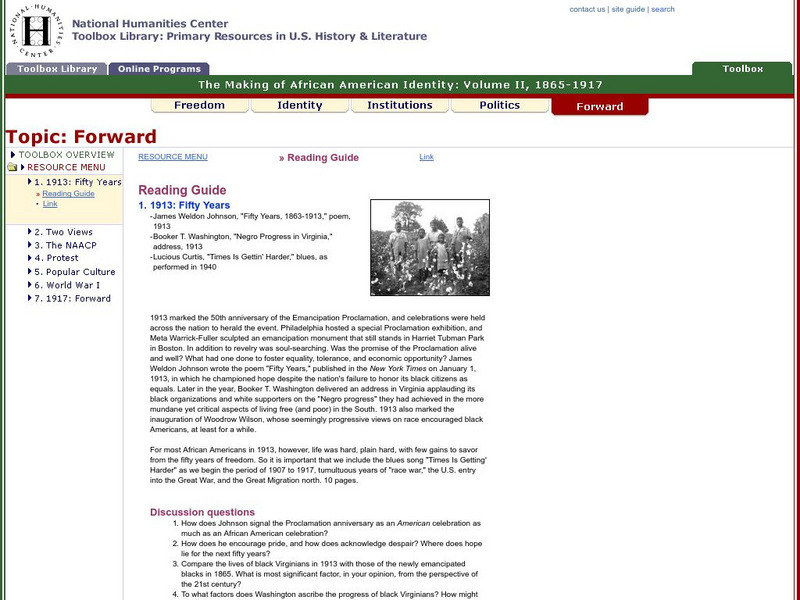

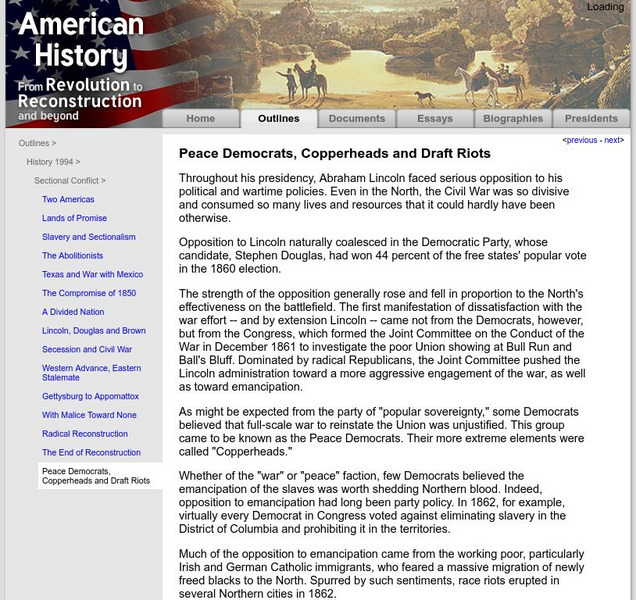

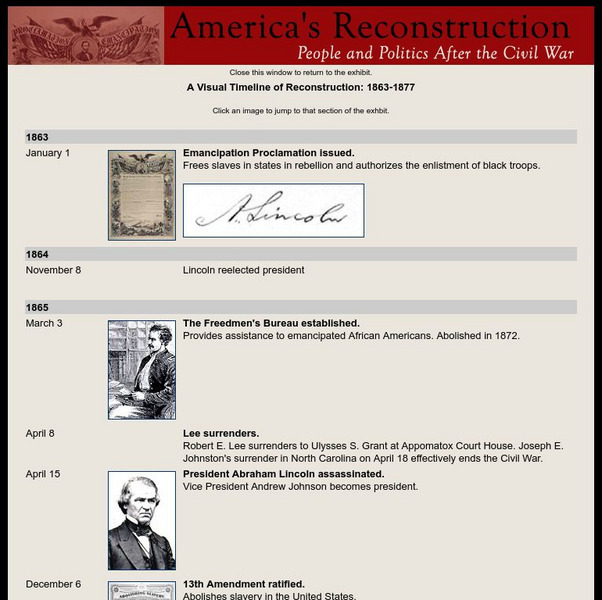



![Pbs Teachers: Conflicting Newspaper Accounts (Civil War Lesson Plan) [Pdf] Lesson Plan Pbs Teachers: Conflicting Newspaper Accounts (Civil War Lesson Plan) [Pdf] Lesson Plan](https://content.lessonplanet.com/knovation/original/41528-385cb213e0de2299b311cc32f0592197.jpg?1661419286)

